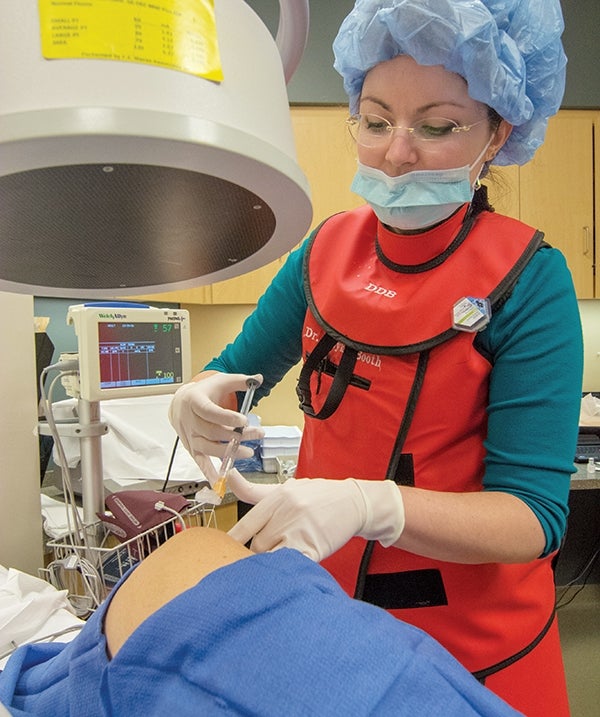The opioid crisis is a national epidemic, but in some pockets of Worcester County, the fallout is blatantly obvious.
That’s the case in the Town of Southbridge, where longtime resident Beverly Pratt lives. Pratt said she sees people walking down the street, “like zombies,” all the time, and knows they’re addicted to opioids.
Like many former industrial Massachusetts cities and towns, Southbridge has been hard hit. Often, people started with prescriptions from their doctors, which has been identified as the impetus for the swell of addiction killing an estimated 2,155 people in Massachusetts at its peak in 2016, according to data from the state Department of Public Health on opioid-related overdoses.
Pratt, who has long suffered from arthritis in her spine causing debilitating pain, would never touch the stuff. Doctors offered her opioid prescriptions, but with family members who have struggled with addiction, including a brother who died of a heroin overdose, she knew the dangers.
“I’ve seen too many people have it ruin their lives,” Pratt said in a recent interview.
In-office procedures see upswing
But what should one do about chronic pain when it prevents them from enjoying their lives and in some cases, makes them unable to work or complete basic daily tasks?
For Pratt, the solution was medical, but it wasn’t a prescription. Harrington HealthCare, the local hospital system serving Southbridge and surrounding towns, has invested resources in a pain clinic, called The Pain Center at Harrington, adjacent to the Harrington Hospital main campus on South Street in Southbridge, since it opened in 2013.
Under the direction of Dr. Kate Mason, a board-certified anesthesiologist with a sub-specialty in pain management, the Pain Center has become a busy clinic for patients who want relief without depending on prescription painkillers. Pratt said receiving nerve ablation treatment from Mason has changed her life. One visit will relieve what was debilitating pain for several months, Pratt said.
“It’s the greatest thing ever invented,” said Pratt, a 72-year-old retiree and mother of four.
In the last couple of years, demand for services has spiked, as primary care doctors have become more aware of the importance of using opioids only for a short course, and not to manage chronic pain.
“I’ve seen a huge upswing in our referral patterns, as people are looking for other ways to manage pain other than opioids and other medications,” Mason said.
Experts say opioid medications, commonly containing Oxycodone, can be effective for patients dealing with acute pain from an injury or following surgery. But a state law signed by Gov. Charlie Baker in 2016 limited the prescription course to seven days for first-time prescriptions. That measure aimed to reduce the risk of people becoming dependent in the first place, following surgery or dental work.
While addiction is clearly a major risk with opioid drugs, which are narcotics, Mason said even more often, she has seen patients who have chronic pain become dependent on them, and ultimately build up a tolerance so that they just don’t work.
“The overwhelming majority of patients, when you look at long-term studies, don’t seem to demonstrate a higher quality of life,” Mason said, of those who use prescription opioids for chronic pain management.
At Harrington, Mason and her colleague, Dr. Deneene Doyker-Booth, perform procedures with a lasting impact on pain reduction, including steroid and trigger point injections, nerve blocks and ablation procedures that are used to deaden nerve endings in affected areas to block pain signals. The two doctors are also helped by a nurse practitioner, Caroline Gaffney, who assists with lower-level care.
“Our focus is an interventional approach to pain management,” Mason said.
Holistic healing
Mason, who completed her residency five years ago, is a believer in holistic treatment for people living with chronic pain, so the approach includes complementary healthcare services, such as physical therapy, exercise, acupuncture and cognitive behavioral therapy.
Therapy, she noted, may be particularly helpful, as patients with chronic pain often have underlying depression or other psychological problems that need addressing.
Katie Adams, director of Mental Health Services at Harrington, has a particular interest in helping patients cope with chronic pain, having trained in the mind-body connection. Adams said often, people seek mental health services after struggling emotionally from the fallout of chronic pain, such as losing a job.
In receiving cognitive behavioral therapy, patients relearn how to think about and react to pain, which helps them manage it better, Adams said.
“I don’t think they come to therapy expecting its going to be a treatment for chronic pain, but I think more often than not, it does play a role” in reducing pain, Adams said.
Some barriers
But actually getting patients in the chair, or even the Pain Center, can be a challenge to begin with. Mason, the pain specialist, said there are sometimes issues with insurance coverage. Doctors must demonstrate the other pain procedures, like injections, are needed because other methods, like pills, weren’t effective. Meanwhile, patients might not like the idea of trying something new, particularly if they’re already dependent on opioids.
“Once patients are on opioids, it’s very difficult to convince them that they can live without them,” Mason said.
Regs drive down abuse
Julie Capozzi, associate professor of psychology and sociology at Mount Wachusett Community College and chair of the college’s new Substance Abuse Counseling Certificate program, is also a big believer in mindfulness, and how it can be used to help people overcome addiction. But she thinks prevention is the best way to avoid addiction, and to that end, she’s encouraged by new laws regulating opioids signed into law by Baker in 2016.
In addition to prescribing limits, Capozzi said the Baker Administration’s move to revamp the state prescription monitoring system that can detect instances of pill-seeking behavior and possible overprescription, has been an important key in tackling abuse.
Capozzi said she hopes decreased access to opioids will lead patients to other pain management methods.
“We need to get people to realize there are alternatives,” Capozzi said.

